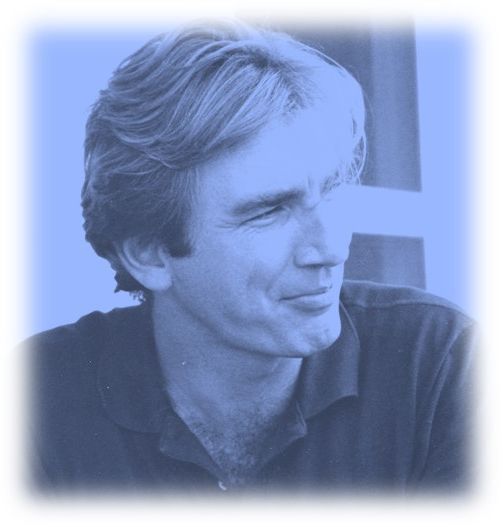Life On the Rocks
Haunted

A living hand thrusts up out of the loamy dirt, reaching for me; Tom will not let me go. There’s something he must tell me. Something terrible. He haunts my nights with visions of his unquiet soul. What? What is it, Tom? What calls you back from the beyond the grave to agonize and torment my spirit and yours?
Thomas O’Rourke was born in Greenwich Village during World War Two to a beautiful young woman just turned nineteen. His father is an Indiana Hoosier, tall and former basketball star, now in the Navy in the Pacific. He’s a healthy eight-pound baby boy, blonde, like his mother. He spends the next two years living with his mother and grandmother on the Upper West Side of Manhattan near Fort Washington Park. His grandfather is in the Merchant Marines sailing the extremely dangerous North Atlantic run to Murmansk during WWII.
His father and grandfather return home. His father aspires to be a professional singer and tries his luck in the big city, with no success. Then he and his bride return to his family home in Zionsville, Indiana, a town which boasts about 1500 residents, where he will work nearby in a factory. At that time, Zionsville is a small farm town with a railroad, about 25 miles north of Indianapolis. The little, but growing family lives next door to Tom’s paternal grandparents.
But something goes terribly wrong inside that small, country home. It’s something that will destroy many lives, Tom’s included.
Scattered across the country, as rootless as confetti, Tom’s life is always in motion. First the Zionsville boyhood, seemingly so normal, with bikes and baby brothers. When Tom is ten, his family ends and his mother returns to her parents in New York City, retreating from her abusive husband, taking with her their three young sons, and no alimony.
Tom’s grandfather dies four years later, when he is fourteen. Three growing boys are too much for his mother and widowed grandmother, so he’s sent to Arizona to live with his father and a new wife and half-sister. From there, he goes into the Army, North Carolina, paratrooper training, Military Policeman in Frankfort, Germany, then back to New York City, with no high school degree, and he can find no job. He hitchhikes to Chicago and finds a good job, finishes high school, enters Goodman Theater School, part of Chicago University, and lands a good role in the touring company of a David Merrick musical, finally ending up in New York City with his union card.
At first, he works all the time, doing showcase theater productions for free to show off his talents, then getting TV commercials, good auditions, and good roles in good productions. Then things dry up. Like all actors, he’s in and out of work; or is he like all actors? What’s wrong with Tom? He had so much promise, but it seems to be over by age thirty. He’s reduced to doing Army training films for very little money because he’s an actor who actually is believable as a soldier.
Again, I see the soft, lumpy earth as it heaps up where his arm reaches up for me, clutching my arm. Help me!! Help me!!!
I receive the heavy box on the front porch. His ashes. It’s shattering. The man I was married to for thirty-five years is in that box. He’s gone. I don’t know why. Why did he smoke and drink himself to death? He had everything to live for. He’d became a successful working actor. We could have retired on our pensions and been happy together watching our son grow up. But Tom was never happy.
The dreams keep coming from him, now. Almost every night. Do I really believe they are real? They seem very real. We are happily gamboling around in a beautiful field. Suddenly, I look at Tom and say ‘the chemo is working. You’re better. We should call the doctors.” Tom looks at me, disappointment clouding his eyes, and says, ‘I’m tired of doctors,’ then he disappears, and I wake up, sad; he’s still dead, and it’s as if I just lost him again.
In another dream, he shows me a beautiful glowing tube full of many neon colors; rocking it back and forth he says, ‘this is the timeline.’ We are both outside the timeline looking at it in wonder.
“It’s all so orchestrated” said Dr. Tom Cicoria about life as he saw it after he died and came back.
What follows is the story of one man’s soul. Tom never understood why he did what he did, but perhaps I can remedy that to some extent. This is a story of his false hopes and suffering. What happened to Tom was a tragedy. It wasn’t a famous tragedy. We weren’t refugees or victims of racial prejudice or social injustice. Ours was a garden variety tragedy of a man whose parents were immature and impulsive. They used alcohol and violence to deal with each other.
This is Tom’s story, his part of the timeline. It didn’t end well, and it didn’t end when he died. It ends with facing the truth of his story. Then he can rest in peace. He can be free.